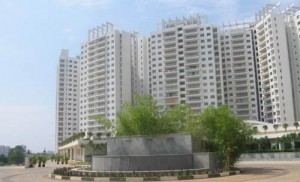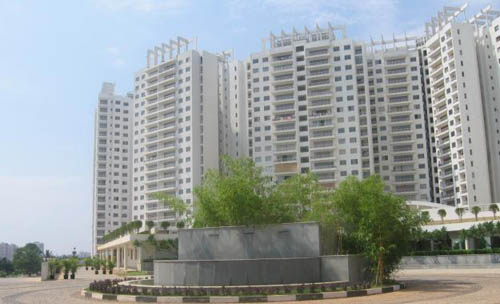 Track2Realty Exclusive: A stable property market that has done reasonably well in 2013, why should the developers in down town south be bothered about the General Elections ahead, asks a property analyst. Well, the answer can not be in straight yes or no but the market trends indicate Coimbatore definitely will be less susceptible to the elections than many other property markets across the country.
Track2Realty Exclusive: A stable property market that has done reasonably well in 2013, why should the developers in down town south be bothered about the General Elections ahead, asks a property analyst. Well, the answer can not be in straight yes or no but the market trends indicate Coimbatore definitely will be less susceptible to the elections than many other property markets across the country.
However, it won’t be completely unaffected by election jitters. After all, regulatory changes have been a cause of concern for the developers in the in this market as well and the political uncertainty prior to the general elections definitely threatens to prolong the house buying decision in the realty market.
Elections and real estate have a symbiotic relationship where elections bring a kind of stasis that is unproductive. The business that is too dependent on the power corridors for each and every clearances and NOCs is always conscious of the paradigm shift in the policies if a new government takes charge. The general elections of 2014 hold more significance for the sector for reasons more than one. The sector that has been looking anxiously at the formation of next central government and its policies with reference to the pending bills like regulator bill and land acquisition bill is rather more worried with the emerging corridors of uncertainty at the political level.
The sector is also conscious of the fact that any policy advocacy for rationalisation of the bills holds no ground if an unstable government comes to power. Moreover, with the economy continuously sliding down and the prospect of an unstable government not being in a position to stem the rot, analysts believe in the short term there won’t be any significant impact on the sector.
That may be the reason why Anshuman Magazine, CMD of CBRE South Asia believes the sector should not bother too much about the outcome of elections at this point of time since the sentiments in the market are any way down. According to him, had there been a 2007 market with sentiments bullish there was reason to be concerned as any policy delay would have adversely affected the business. But today, when in any way there is an element of uncertainty with economy and with the outcome of the elections, may be it won’t affect as much.
“Frankly, I don’t think the political outcome of the elections should worry the sector as business goes on irrespective of which government comes to power. Of course, a stable government means fast track policies but at this moment I feel more than the government it is the market forces that is keeping the sentiments down and the impending elections are only keeping the developers anxious. But I don’t see any significant impact during and after elections as far as the fortunes of the sector are concerned,” says Magazine.
Jackbastian K Nazareth, Group CEO, Puravankara says elections are a time of ambiguity and trepidation across many sectors. But housing is unique in that it is a long-term purchase, therefore consumer decision making is unlikely to be overly influenced by the near-term political scenario. The property market in Coimbatore has remained relatively stable in 2013. He expects that trend to continue the next year. The city is shoring up its credentials as a business-friendly destination and it is expected the property market to attract end-users and investors alike.
“The Tamil Nadu government must be commended for its focus on infrastructure development across the state, Coimbatore included. As long as that commitment remains, the prognosis for real-estate is good. The impending elections could have a bearing on business-planning and decision making of developers. Political stability and proactive reforms are pivotal to real-estate sector growth. The residential real-estate segment is unique in that it is a long-term purchase; therefore decision making is unlikely to be overly influenced by the near-term political scenario. The residential real-estate market in the south has been relatively stable; prudent pricing and streamlined supply has led to a steady rise in absorption rates,” says Nazareth.
Coimbatore remains relatively affordable; developers having adopted cautious pricing strategies. With the city fast-gaining cache’ as an investor friendly destination and the slew of infrastructure development, property prices are bound to escalate. The savvy investors would not put off their purchase decision during the elections, but may wait till the elections and hence affect the first part of 2014. Generally, the decision process is slow during the election period and majority of the key players of funds study the market, get their base strengthened and bring in money in a big way once a stable government comes into power.
Realty analysts otherwise are unanimous that this is not a normal election year where the sector will wait to see who is elected and gauge how that will affect their business, work, benefits, etc. This time it seems to be different, and it is having a very large affect. This is because the economy is the largest issue on voters’ minds, which makes it the most important topic for voters and anyone running for election/re-election. The housing sector is seen to be the key to the economy, if it goes up so will the economy.
Anuj Puri, Chairman, CII WR Infrastructure, Real Estate & Construction Sub-Committee admits that the outcome of the general elections would definitely have some bearing on whether the market will pick up speed, continue at the current pace or slow down. The reason is that the political stability and proactive reforms that can come on the heels of a general election can render the real estate market more conducive to growth. In other words, the results of polls can therefore have a direct bearing on market sentiments.
“Important regulations related to the real estate sector are still hanging fire and awaiting full approval and implementation. The government is aware that these moves are crucial for the sector’s growth, which is hard-wired into the country’s overall economic growth as well. I am confident that the dire need for seeing these regulations through is recognized and acknowledged in the right quarters. The delays may be because every industry angle has to be considered in such regulations so that they are not overly skewed or draconian towards any side, but holistically oriented towards growth,” says Puri.
Given the fact that the political climate is election driven much in advance this time, it raises two schools of thought in the real estate market. Firstly, the prolonged political uncertainty will cause caution and hesitancy in the sector beyond a traditional election. Secondly, with the election mood so much in advance the marketplace will absorb the thought of an election and its likely impact much more easily.
It is not just the next government’s economic policies that will be a key driver of the health of real estate, but the new government’s policies with respect to the pending realty bills in the Parliament will also decide whether the houses will be affordable or the supply side constraint borne out of new policies will kill the golden goose that promises to contribute significantly to the state GDP. In any case, the new government has a couple of real issues of real estate to address, and that is what keeps the sector guessing as of now. Elections or no elections, developers are always dependent on the authorities, who give approvals.





